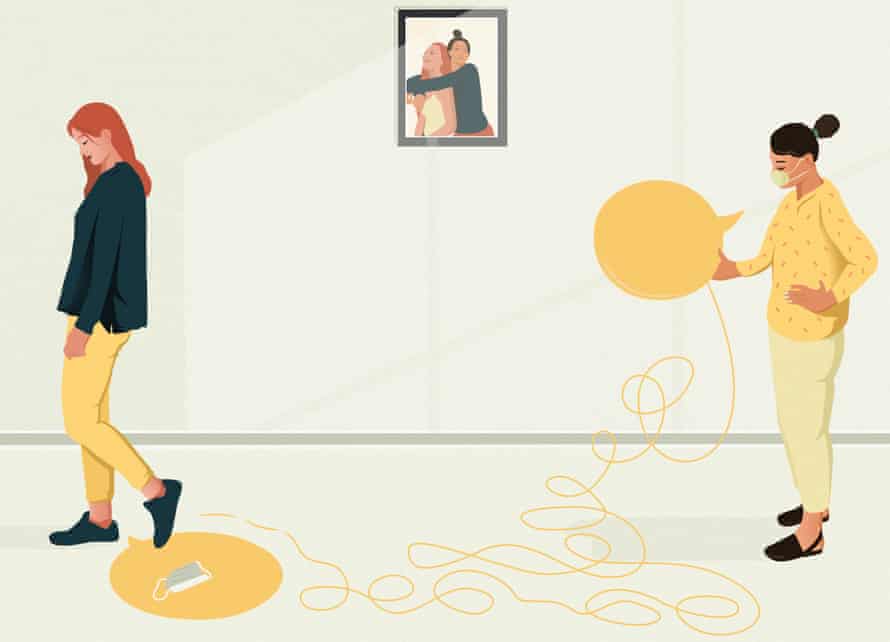Stunningly to me, considering how much I generally consider psychology and sociology without being a true expert in either, I’ve only mentioned Dunbar’s Number in a blog once, which was this one back in 2015-2016 era. Generally speaking, Dunbar’s Number says the upper limit of your social ecosystem is about 150 people, and that most people have about 4-6 close friends, which is typically your significant other (if you have one), some family members (ditto), and maybe 1-2 non-related people. There’s a whole bunch of shit about posturing, extroversion, etc. that we could bring up here, but we won’t. For the purposes of this conversation, 4-6 close friends (seems reasonable) and 150 people in the broader ecosystem, Facebook friend counts be damned.
Now you’ve got this article from New York Times on COVID shrinking friend circles, which I would absolutely agree with. I think at the intersection of COVID, racial debates, Trump vs. Biden, me getting divorced and remarried, etc. — I’ve probably remade my entire friend list in the last 4-5 years, minus a couple of people. It’s been a ride: at times awesome, at times utterly depressing.
Turning to this Times article:
The past year has forced a mass meditation on the nature and strength of our social ties. While our culture has encouraged us to accumulate friends, both on- and offline, like points, the pandemic has laid bare the distinction between quantity and quality of connections. There are those we’ve longed to see and those it’s been a relief not to see. The full reckoning will become apparent only when we can once again safely gather and invitations are — or are not — extended. Our social lives and social selves may never be the same.
Profound — but quite true.
Further down, from Dunbar himself, you have this:
“Sometimes you fall out with people, or you just find somebody else to substitute in that slot,” Dr. Dunbar said. “The pandemic is likely sharpening the decisions we make about who we really like and dropping those who we like if there’s nobody else.” All those incidental or convenient friends have likely evaporated, and you’re left to ponder who is actually important to you.
Later, Dunbar and the author of this article talk about how you replace your entire social network every seven years, which seems relatively accurate especially if you move for work, or you’re in the age range where people are having kids and switching subdivisions for school districts, etc. I’ve seen recently that we change over a lot of our friends every 2-3 years, which seems relevant too. I have a friend in Texas who I don’t see a lot, and recently on her socials I saw her hanging out with girls I’ve never seen before, and she’s like “Oh yea, they came into my life a little before COVID.” I guess that would be the 2-3 stat, no?
Here’s a sad addition to all this: apparently only half — just half — of our friendships are mutual, i.e. the other person considers us a friend as well. Hot diggity damn! I had a dude I was close with — he was actually the best man in my first wedding — and we fell out over time. As I looked back on that “friendship,” and even checked some emails from 2007 or so, I don’t think we were ever that “mutual,” so that resonates with me as well.
I’ve written before about the expectations of friendship — that article performs surprisingly well for me, all-in — and this Times article makes the following proclamation on friendship expectation: We want those who are there for us, who listen without judgment and understand what we’re going through. They may not agree with us, but they get us.
Here’s a guy from Ohio University on all of it:
“People remain friends to the extent they are fulfilling each other’s expectation of the relationship across the life span and, I would say, across Covid,” Dr. Rawlins said. “We need to cross-examine ourselves: Who have we kept in touch with during the pandemic? Who have you taken a risk at a certain point to see because they mean that much to you?”
One of the first things I ever wrote on COVID and friendships was this idea that if you already sucked at being a friend, COVID wouldn’t make you much better. I still believe that — and it applies to me a lot too, for sure. I’m also not entirely sure whether we’re going to have a mental health reckoning on the back end of this — I do believe we will, but not entirely positive, and early data indicates we might not. I don’t know if I buy the “Roaring 20s” argument because 1919 was also the end of a massive World War, and I think right now (at least in America) we’re very polarized and heated, and Trauma Olympics is very real for some, so I’m thinking Performative Masking and screaming at each other will be the norm more than people doing the Lindy Hop. Maybe I am wrong. Hopefully I am.
It’s been an interesting ride, though, and I think Dunbar’s Number probably feels realer than ever as we start to vaccinate out of all this. Your take?
